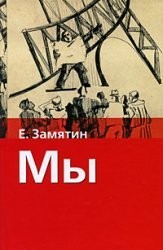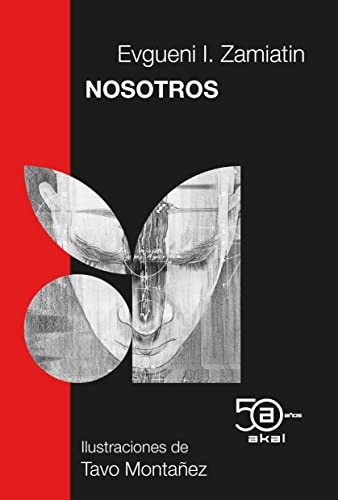Yevgeny Ivanovich Zamyatin (Russian: Евге́ний Ива́нович Замя́тин, IPA: [jɪvˈɡʲenʲɪj ɪˈvanəvʲɪtɕ zɐˈmʲætʲɪn]; 20 January (Julian) / 1 February (Gregorian), 1884 – 10 March 1937), sometimes anglicized as Eugene Zamyatin, was a Russian author of science fiction, philosophy, literary criticism, and political satire. Despite being the son of a Russian Orthodox priest, Zamyatin lost his faith in Christianity at an early age and became a Bolshevik. As a member of his Party's Pre-Revolutionary underground, Zamyatin was repeatedly arrested, beaten, imprisoned, and exiled. However, Zamyatin was just as deeply disturbed by the policies pursued by the All-Union Communist Party (b) (VKP (b) following the October Revolution as he had been by the Tsarist policy of Orthodoxy, Autocracy, and Nationality. Due to his subsequent use of literature to both satirize and criticize the Soviet Union's enforced conformity and increasing totalitarianism, Zamyatin, whom Mirra Ginsburg has dubbed "a man of incorruptible and uncompromising courage," is now considered one of the first Soviet dissidents. He is most famous for his highly influential and widely imitated 1921 dystopian science fiction novel We, which is set in a futuristic police state. In 1921, We became the first work banned by the Soviet censorship board. Ultimately, Zamyatin arranged for …
Yevgeny Zamyatin
Author details
- Born:
- Nov. 7, 1884
- Died:
- Nov. 7, 1937
External links
Yevgeny Ivanovich Zamyatin (Russian: Евге́ний Ива́нович Замя́тин, IPA: [jɪvˈɡʲenʲɪj ɪˈvanəvʲɪtɕ zɐˈmʲætʲɪn]; 20 January (Julian) / 1 February (Gregorian), 1884 – 10 March 1937), sometimes anglicized as Eugene Zamyatin, was a Russian author of science fiction, philosophy, literary criticism, and political satire. Despite being the son of a Russian Orthodox priest, Zamyatin lost his faith in Christianity at an early age and became a Bolshevik. As a member of his Party's Pre-Revolutionary underground, Zamyatin was repeatedly arrested, beaten, imprisoned, and exiled. However, Zamyatin was just as deeply disturbed by the policies pursued by the All-Union Communist Party (b) (VKP (b) following the October Revolution as he had been by the Tsarist policy of Orthodoxy, Autocracy, and Nationality. Due to his subsequent use of literature to both satirize and criticize the Soviet Union's enforced conformity and increasing totalitarianism, Zamyatin, whom Mirra Ginsburg has dubbed "a man of incorruptible and uncompromising courage," is now considered one of the first Soviet dissidents. He is most famous for his highly influential and widely imitated 1921 dystopian science fiction novel We, which is set in a futuristic police state. In 1921, We became the first work banned by the Soviet censorship board. Ultimately, Zamyatin arranged for We to be smuggled to the West for publication. The outrage this sparked within the Party and the Union of Soviet Writers led directly to the State-organized defamation and blacklisting of Zamyatin and his successful request for permission from Joseph Stalin to leave his homeland. In 1937, however, Zamyatin died in poverty in Paris. After his death, Zamyatin's writings were circulated in samizdat and continued to inspire multiple generations of Soviet dissidents.












